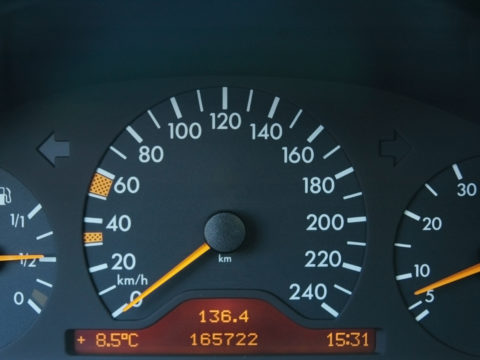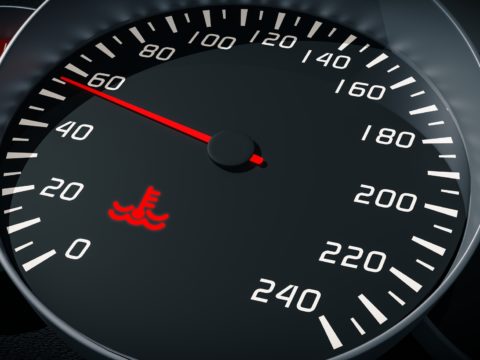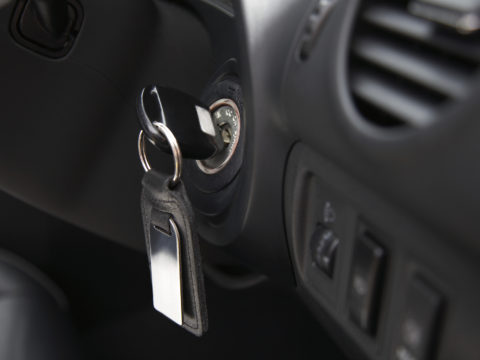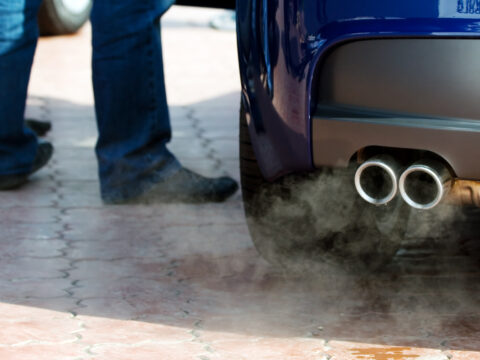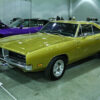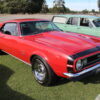Rattling noises from your auto as you accelerate can be frustrating, especially when the problem doesn’t resolve itself as quickly as you’d like. But is this a serious issue, or can you ignore it?
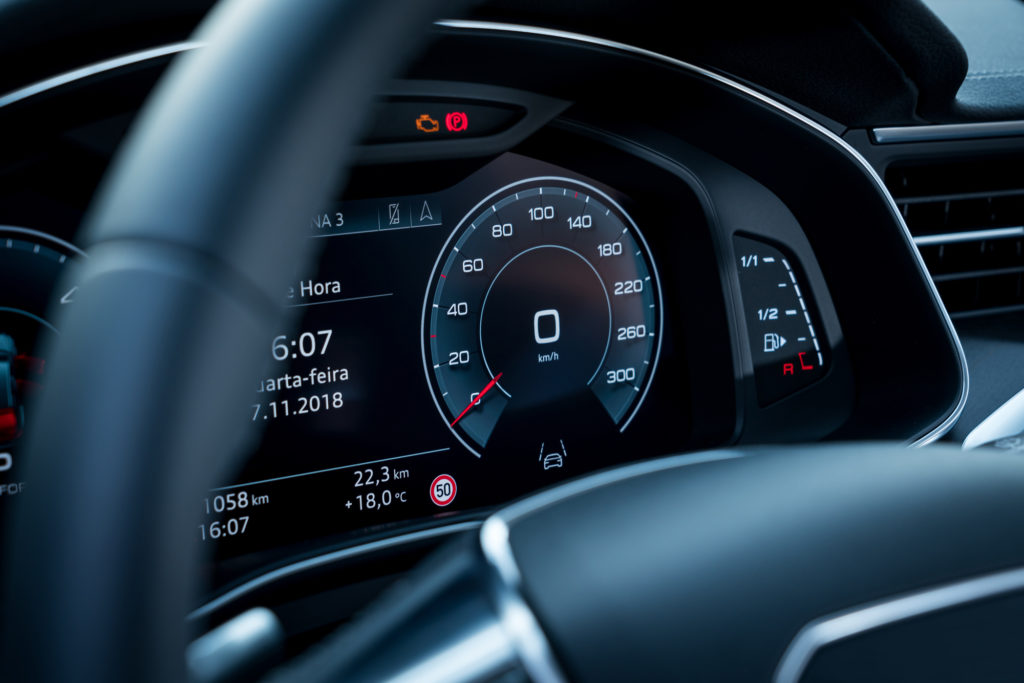
Noise when accelerating can be caused by several problems, ranging from low oil levels to faulty engine accessories in your car.
Taking time to establish the root of the problem will ease your work, as you’ll have a clear map of what you’re facing and the best way to approach it.
Contents
Is Clicking Noise When Accelerating Normal?
A clicking noise coming off your car during acceleration signals a problem, and you should work to catch it as early as possible to avoid incurring heavy expenses later.
The noise can be attributed to a whole pool of causes, but a careful diagnosis can easily identify and rectify the problem.
What Causes a Clicking Noise When Accelerating?
The following are the major causes of a clicking sound in your vehicle during acceleration:
Low or Dirty Engine Oil
Some of the engine parts might not be well lubricated as they should due to a low level of engine oil, thus making an irritating clicking sound as your vehicle moves.
When the oil level is low, it does not reach the top parts of the engine, leaving them dry and rough.
The oil might also be dirt-contaminated due to the normal wear and tear as you drive.
With time, dirt builds up and clogs the engine filters, causing the clicking sound.
Bad Spark Plugs
Spark plugs are paramount in absorbing explosions released as the engine runs. If the spark plugs are not working correctly or are misaligned, they will allow exhaust fumes to pass and cause the clicking sound in the engine.
Loose or misaligned spark plugs cannot produce the sparks required for combustion in the cylinders and make a weird sound when the engine is running.
A Bad Valvetrain
The engine’s synchronous mechanism comprises numerous valves. The valvetrain controls these valves (intake and exhaust) to maintain a coordinated sequence.
Whenever the valvetrain develops problems, the coordination of the valves is interrupted, and the valves are not well adjusted.
If the adjustment is not strong enough, valves may make a clicking sound in the engine.
You are also likely to experience a depreciation of power during acceleration, as the engine is prone to misfires causing poor lighting up of the cylinders.
A Knocked Rod
The rod in the engine is held in position by bearings. These bearings wear down after continuous use and allow the rod to move around. This movement makes a clicking sound.
The rod knock significantly affects the engine RPM and should be taken care of as quickly as possible to avoid escalation of impact.
Irregular Filter Spacing
The filter is located between the camshaft and pushrod. These components need to make proper contact for them to function efficiently.
If the space between these components is too tight or abnormally large, it may cause a clicking noise.
The engine generates heat as it runs, expanding the metallic components significantly.
If the space is too tight, the parts will rub harder than they should and cause a clicking sound.
Damaged Engine Accessories
The front part of the engine holds several accessories, including:
- Belt tensioners
- The water pump
- AC compressors
- Pulleys
These parts can develop problems and cause a clicking sound when the car is in motion. The pulleys, for example, use bearings to turn.
These bearings wear down through the usual wear and tear, and the pulley starts making irritating clicking noise during acceleration.
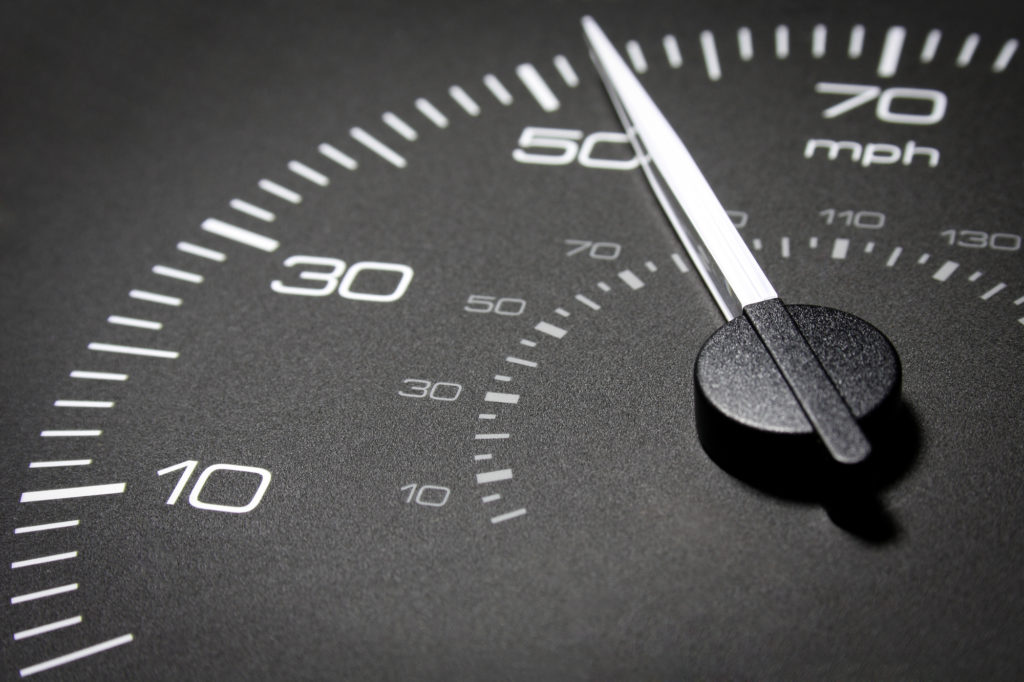
What to Do if Your Vehicle Makes a Clicking Noise?
After establishing the possible causes of the clicking noise, it’s time to face the problem and eliminate it for a smoother ride.
The following fixes will help you get rid of the noise.
Diagnose and Fix Any Failing Accessories
Use a mechanic’s stethoscope to diagnose which accessory may be faulty and fix it. The stethoscope will help pinpoint the troublesome parts so that you can decide the way forward.
If you have no mechanical experience, call in a professional mechanic to run the tests and advise you accordingly if any of the parts need to be replaced or fixed.
You may need to rebuild your motor entirely if you have a rod knocking problem, as that is the only viable solution.
It is expensive but has to be fixed sooner to have a peaceful time driving.
Check the distance between filters and ensure it is correct. If not, have a professional adjust it as it needs precise space to work correctly.
Check the Spark Plugs
As discussed earlier, damaged spark plugs can significantly cause noise in your car. Inspect them for any damage or loose connections.
If they are loosely fitted, tighten them with tightening tools at your disposal.
If cracked, you must replace them and inspect whether they may have ruined the cylinder head threads. If the cylinder head is damaged, repair or replace it, which can be costly.
Check the Oil Level and Pressure
Use a dipstick to inspect the oil level and top it off if it’s too low. If the level is okay, it could be a pressure issue.
Use a pressure gauge to inspect the pressure when the engine is warm — during idling. Normal pressure is between 15 and 20 psi.
If it is low and way out of the bracket, you need to have a professional fix it.
Perform a Complete Engine Inspection
If the above solutions don’t give you an amicable solution to the root cause of the problem, then you may need to have the engine scanned.
The scan will help point out the specific underlying issues that need fixing.
It may call for scanning the vehicle’s onboard computer to extract the Onboard Diagnostic fault codes that may be saved.
These codes will help identify the particular faults that may have occurred.
Is It Safe To Drive an Auto With a Clicking Noise?
It’s not safe to drive an auto with a clicking noise.
Driving a car with potentially faulty spark plugs, a valvetrain, or even a poorly oiled engine could be dangerous to you and the vehicle’s occupants.
Any defective parts could go off in a split second and have devastating repercussions. It’s advisable to have the car inspected and the problem solved as soon as possible.

